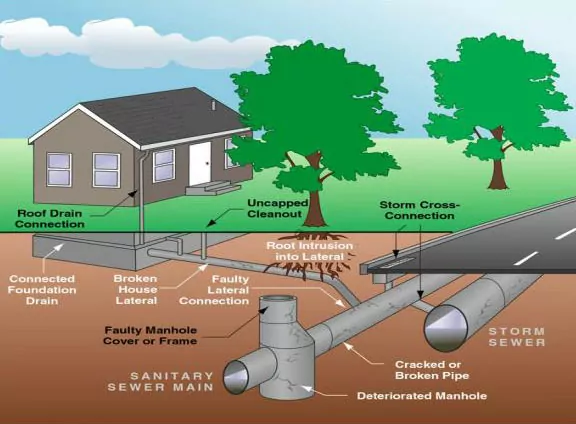Ensuring Smooth Flow: Plumbing System Inspections Unveiled

Ensuring Smooth Flow: Plumbing System Inspections Unveiled
The plumbing system is the unsung hero of every home, responsible for delivering clean water and efficiently disposing of waste. However, like any system, it requires regular inspections to ensure it functions optimally and to prevent potential issues.
The Importance of Plumbing System Inspections:
Regular plumbing system inspections are crucial for maintaining a functional and efficient home. These inspections go beyond fixing visible leaks; they involve a comprehensive assessment of the entire plumbing infrastructure, identifying potential problems before they escalate into costly repairs.
Early Detection of Leaks and Water Damage:
One of the primary objectives of plumbing system inspections is the early detection of leaks. Even small, hidden leaks can lead to water damage over time, causing structural issues and fostering mold growth. Regular inspections help identify and address these leaks before they become major concerns.
Assessment of Pipe Integrity:
Over time, pipes can deteriorate due to various factors such as corrosion, mineral buildup, or age. Inspections involve a thorough assessment of pipe integrity, identifying any signs of wear and tear. This proactive approach helps in replacing compromised pipes before they result in leaks or bursts.
Checking for Proper Water Pressure:
Inadequate water pressure can be a sign of underlying issues within the plumbing system. During inspections, professionals assess water pressure levels, ensuring that they meet the necessary standards. Correcting water pressure problems promptly can prevent damage to appliances and improve the overall functionality of the plumbing system.
Examination of Water Heater Efficiency:
Water heaters are an integral part of the plumbing system, providing hot water for various household activities. Plumbing inspections include an assessment of water heater efficiency, checking for signs of sediment buildup, corrosion, or other issues that may impact its performance. Regular maintenance can extend the life of the water heater and enhance its efficiency.
Identification of Potential Blockages:
Blocked drains and pipes can lead to backups and unpleasant odors. Plumbing system inspections involve checking for potential blockages, whether caused by debris, grease buildup, or tree roots infiltrating the sewer lines. Addressing these blockages early on prevents sewage backups and ensures smooth drainage.
Ensuring Proper Functionality of Fixtures:
Plumbing inspections also focus on the functionality of fixtures such as faucets, toilets, and showers. Leaky faucets and running toilets are not only wasteful but can also lead to increased water bills. Inspections help identify and repair issues with fixtures, promoting water conservation and preventing water-related damage.
Assessment of Sewer Line Condition:
Sewer lines play a critical role in transporting waste away from the home. Inspections involve a thorough assessment of sewer line conditions, looking for signs of cracks, blockages, or tree root intrusion. Addressing sewer line issues promptly is essential to prevent sewage backups and potential health hazards.
Evaluation of Water Quality:
Plumbing system inspections extend beyond functionality to include an evaluation of water quality. Professionals check for contaminants and assess the condition of water treatment systems to ensure that the water entering the home is safe for consumption and daily use.
Conclusion:
In conclusion, regular plumbing system inspections are a proactive measure to ensure the smooth flow of water throughout a home. From detecting leaks and assessing pipe integrity to evaluating water quality, these inspections play a crucial role in preventing issues and maintaining a healthy, functional plumbing system.
For professional Plumbing System Inspections, visit jetdesignhome.my.id. Ensure the longevity and efficiency of your plumbing system with timely inspections and proactive maintenance.









